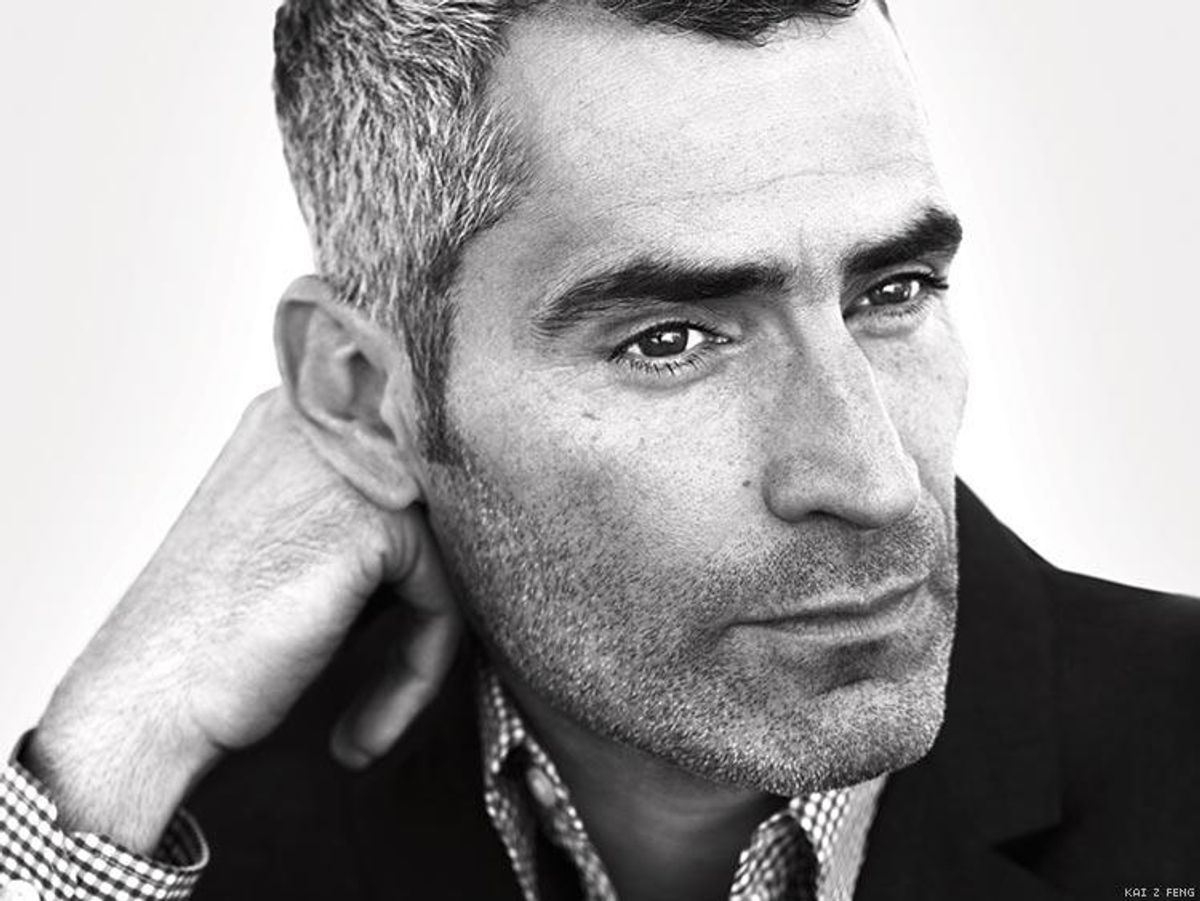News & Opinion
Editor's Letter: The More Trump Howls, The More He Energizes Resistance

"I was struck again and again not by what we stand to lose, but by what we have gained."
February 06 2017 6:18 AM EST
November 04 2024 10:46 AM EST
aaronhicklin
By continuing to use our site, you agree to our Private Policy and Terms of Use.

"I was struck again and again not by what we stand to lose, but by what we have gained."
Let's take a moment to remind ourselves that we live in glorious times. Yes, we have Trump to contend with, and we may soon pay a catastrophic price for his election, but in putting together this issue, I was struck again and again not by what we stand to lose, but by what we have gained. At a time when our political culture has turned deeply cynical, art is reaffirming its position as a locus for connection, dignity, and humanity. To appreciate the ways in which art illuminates and magnifies stories long marginalized or made invisible, you need only look at the extraordinary success of Moonlight, a movie with a black queer man at its center, or the upcoming documentary Kiki, which revisits the drag scene and voguing balls immortalized in Paris Is Burning -- but with a more acute sense of the political imperatives. And this isn't only occurring in Western culture. In China, the best efforts of the censors could not stop Go Princess Go, a show in which a contemporary man wakes up in ancient times as a woman, from being watched 2.6 billion times before being pulled from the Web.
Related | A Moonlight Revolution: The Black Queer Experience Comes of Age in America
Art like this has the power to change hearts and souls. Dig out the 1975 British TV movie The Naked Civil Servant, a biopic of the life of queer icon Quentin Crisp, and you'll appreciate the unique ability of film and TV to challenge entrenched ideas and prejudices. That was more than 40 years ago -- on mainstream, commercial television no less. It has taken too long for Hollywood to train the same lens on the lives of black men and women, but there is a sense that all that we have today rests on the shoulders of what came before. Reading Tarell Alvin McCraney's personal music playlist (page 99), replete with songs by Mahalia Jackson and Nina Simone, is to remind ourselves that culture grows out of itself, each moment ceding to the next. Nina Simone had to be brave every time she stepped on stage to sing. Beyonce is brave in a different way, but it's musicians like Simone and Jackson, among many, many others, who helped make today's progress possible. Likewise, in his cover story on the phenomenon of Moonlight, Out's senior editor, Les Fabian Brathwaite, reflects on the sparse history of black queer men in film, but concludes with a powerful encomium to what he describes as last year's "thrilling renaissance of black culture and black identity," from Beyonce's fearless Super Bowl performance to Paul Beatty's Booker Prize-winning novel, The Sellout. "This renaissance will continue because it has to," he writes. "Art flourishes in the harshest of climates."
In many ways, of course, this cultural revolution is why Trump is now desecrating the White House -- a last-ditch effort by him and his cronies to turn back the march of progress, to reshape the world anew in their ugly, bullying image. His head-to-head with Meryl Streep was a vivid illustration of an old-new dynamic, much like Voldemort battling (gay) Dumbledore. To quote Newton's Third Law (and why not), every action has an equal and opposite reaction. The more Trump gnashes and howls, the more he energizes a resistance movement.
The tyranny of social media may have provided Trump with a megaphone through which to amplify his lies, but long after that medium has collapsed under its own toxic weight, movies like Moonlight, as with the songs of Nina Simone or the works of James Baldwin, will be with us still, stirring lessons in all that's good and compassionate and true in human nature. Great art like this grows out of pain, but it comes back to us all as beauty.
Like what you see here? Subscribe and be the first to receive the latest issue of Out. Subscribe to print here and receive a complimentary digital subscription.